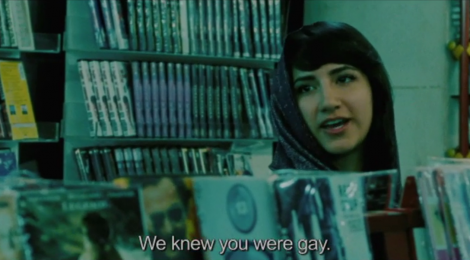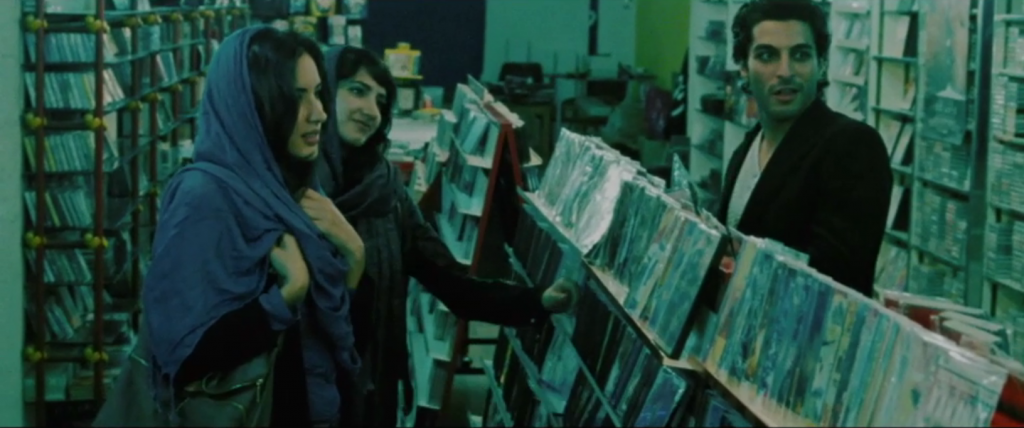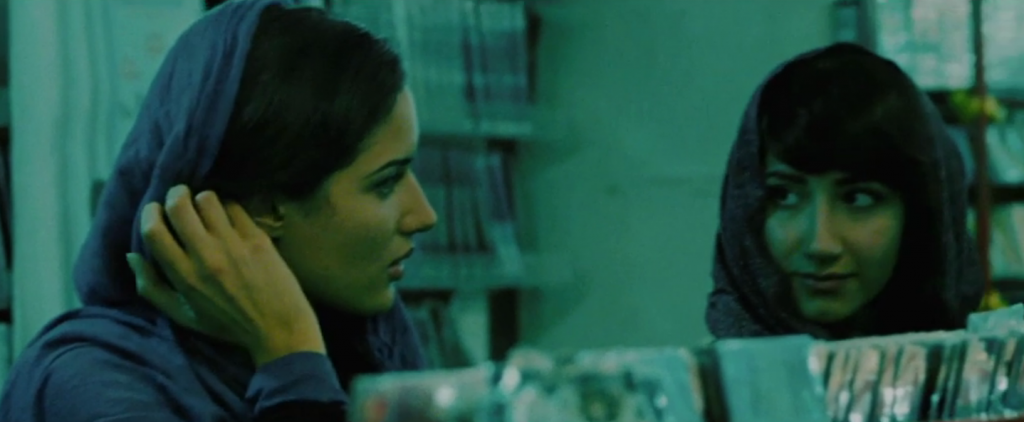
Queer Frames #4: Circumstance
– “This film is not about fucking. It is about human rights!”
– “Fucking is a human right.”
– “Politics aren’t that romantic.”
These are just a few of the stances voiced in a debate about Gus Van Sant’s 2008 film Milk that occurs among four young characters in Maryam Keshavarz’s latest film, Circumstance.[1] This scene points up how the institutions of film culture and the discourses around films condense questions of politics, sexuality and queerness.
Here the film’s two women leads Atafeh and Shireen have been brought by two male friends Joey and Hossein to a video store that hides behind a barbershop’s storefront. The women are in a secret passionate affair, and their affections for each other may elude Joey and Hossein who often make advances on the women with varying degrees of success.
While browsing through the store’s extensive selections, Hossein suggests that together they produce a dubbed version of Milk, something not found in Iran even amongst this store’s pirated DVDs. According to Hossein, the film’s story of gay rights serves as a useful allegory – not concerning the fates of queers living in Iran but exposing the path to freedom for an entire modern generation of Iran. (There’s even the suggestion that Iran’s women are oppressed like gay men were in the 1970s.) As Joey and Atafeh tease him about his entrepreneurial and political idealism, Hossein persistently argues for the film serving as an inspiring example of grassroots politics for the youth of Iran. The conversation’s oscillation between earnest sincerity and obnoxious mocking deftly allows the film to differentiate the attitudes of each participant.
The film Milk is not simply an excuse to havea conversation about politics. It is simultaneously a harbinger of a future politics, an anachronism of a now inaccessible mode of being political (later we discover an old photograph Atafeh’s father in 1970s Berkeley), and a cipher for what is political right now in the secret relationship shared by the women. Similarly, the conversation’s setting is as interestingly as the content of its back and forth. Here the clandestine video store serves as not just background of this heated discussion but also as the site that fuels the tensions among these youths, exposing how modern Iranian history impacts each of their lives in disparate ways. The mise-en-scene of the video store — and all the desires and sentiments that location generates — allows Circumstance to expose the political fault-lines of sex and gender.
[1] In a talk at the 2011 SCMS conference in Boston, Patricia White of Swarthmore College read Circumstance against the “Gay Girl in Damascus” blog hoax. My thinking on this film is indebted to White’s keen attention to how the cross-cultural appeal of diasporic Middle Eastern films appears in the popular criticism and this film’s own promotion. Her analysis of this discursive terrain includes key research into the film’s online marketing and social media campaigns in the US and Europe.



 RSS - Posts
RSS - Posts
Comments are closed, but trackbacks and pingbacks are open.